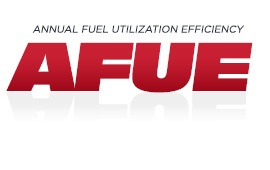Choosing a new heater can be a complex and overwhelming process. Not only are there lots of brands and sizes to choose from, but you are also faced with unfamiliar terminology that can further confuse matters. Homeowners often overlook the AFUE percentage number on their existing or new heater, but this is actually an important consideration. So, before you begin shopping for a new heater, it is vital that you familiarize yourself with why an AFUE is so important.
What is an AFUE Rating?
AFUE is the abbreviation for the Annual Fuel Utilization Efficiency of your heater. This is expressed as a percentage to refer to how much of the energy which is consumed by the system is transferred into heat power. The remainder of this percentage refers to what is lost through waste and inefficiency. So, if your heater has an AFUE rating of 70%, this means that 70% of the energy consumed by the unit is used to heat your home, and 30% is lost. This percentage is measured for a full year, which allows for temperature variations and variations in daily use to be accounted for. This means that when you are shopping for a new heater, you should be aware that the higher the AFUE rating, the more efficiency you can expect.
High efficiency models typically have an AFUE rating of between 90 to 98.5%. It is impossible for a model to be 100% efficient as there will always be some degree of heat loss. It is important to note that upgrading your heater from a 56% AFUE rated model to an energy efficient 90% AFUE model in an average house in a cold climate would save approximately 1.5 tonnes of carbon dioxide emissions per year, according to Energy.gov. This means that although there is an obvious initial cost of upgrading, you could save a great deal on your heating bills immediately and in the long term.
Other Considerations:
Unfortunately, choosing a new heater is rarely as simple as looking at one rating. You will also need to consider the size, capacity, and brand of the new heater. Another aspect to consider is that the AFUE rating is not static. As a heater ages, the AFUE rating will decline. This is because wear and tear will reduce the efficiency of the unit over time. Additionally, as new technology is developed and released onto the marketplace, there will be more efficient units and components which will increase the AFUE rating. For example, the most efficient heater bought ten years ago, will not be able to deliver the efficiency of even an average new model, since the technology has vastly improved in the intervening years.
You should also be aware that the AFUE rating does not illustrate the power of the system. This means that a smaller heater could have a far higher rating compared to a larger and more powerful model. This does not mean that the smaller unit is the best suited to your requirements.
